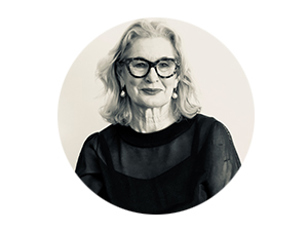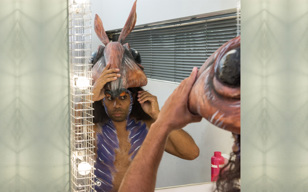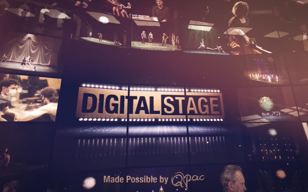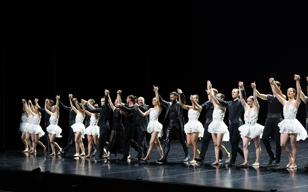Published: 30 July 2018
One of the pleasures of insomnia is that it offers uninterrupted nights for deep listening; a favourite is the BBC Radio 4 podcast Desert Island Discs.
Many of you will be familiar with such programs that invite people from all walks of life to select music that delineates the vicissitudes of their life. For me, the best interviews are the ones where the person doesn’t try to tell a victory narrative leaving out the warty bits, but rather reveals their vulnerabilities, their frailties and foibles. Frankly, perfection bores me.
When I was invited to be a guest on a similar program (Hi-Fidelity on ABC 612), I spent many nights listening extra carefully, trying to determine what sparked the interviewer’s imagination. Certainly it was the stories that left me perplexed asking, ‘how could they think or do that, that’s just madness, are they crazy?’ that fired my imagination. The Talmud is recalled here: ‘we don’t see things as they are, we see them as we are,’ pointing to the possibility that we all seem slightly mad to one another.
I realised that creating a lifeline punctuated by music was an opportunity to reflect and bring to light motives behind choices I had made or perhaps more interestingly choices I had not made and the associated life consequences. Neuroscientist Antonio Damasio says getting conscious is like, ‘stepping into the light’. It does require work, really hard emotional mental work. This kind of deep emotional reckoning is not often credited as exertion or effort. Reasons include privacy, people don’t talk about it fearing others’ judgement, stigma, addressing mental issues makes others uncomfortable, suspicion or a person seeking help may have deep pathologies.
Whether it’s talking honestly in the media, reflecting on a lifeline, meditating, undertaking cognitive therapy, talking with a counsellor, a life coach, or a psychiatrist, becoming conscious requires intense effort in attempts to understand ourselves. Nobel Prize winning physicist David Bohm supported this when he stated, ‘you’ve got to give a lot of attention to consciousness. This is one of the things of which our society is ignorant. It assumes consciousness requires no attention. But consciousness is what gives attention. Consciousness requires very alert attention or else it will simply destroy’.
Bohm goes onto to argue that normally our thoughts have us rather than we are having them. This is the rider (ego) and elephant (id) metaphor, thinking we are in control of this unruly beast (unconscious), when essentially we haven’t much of an idea how it behaves. Antidotes to unruliness are definitely mindfulness and meditation, but as I chose my music I began to think something more was at play.
I determined that the stories of misadventures that reverberated for me in others were not because of schadenfreude but rather because of a fascination about how we seem to expect solidity from this protean thing called the ‘self’, acting as if omnipotence and omniscience are a replicable model, as if infallibility is some kind of fixed entity that always acts in full self-awareness. This struck me as plain silly. Like believing we’re Greek gods and can meditate ourselves into logic and order.
There’s an ongoing preposterousness inherent in assuming that we can know how our lives will turn out and also know how to act wisely in the world, and if we don’t know that, it’s a real character flaw. More often than not as we listen to people’s stories we realise that what we do is sabotage ourselves by doing quite the opposite of what might be good for us. The examples are endless: over/under committing, unadvisedly/never falling in love, over/under parenting, over imbibing/wowsering, over/under exercising, overspending/being stingy, over/ under eating, repeating the same mistakes over and over again.
For interviewers, artists, scholars, teachers, therapists and audiences of the arts and humanities, the primary purpose is to reflect and understand the complexities of the human condition, particularly focused on the vagaries of the self. Scholar Deborah Britzman calls it, ‘creating a love affair with what is at its most difficult to love,’ and psychoanalyst Adam Philips says that, ‘revealing the idiosyncrasy of our desire – or what in different languages might be called our madness, or our passions, or our imagination,’ is the unofficial (or illicit) work we do on trying to figure out our inner anomalies. The idea even that we have an unconscious inner life that runs in us is an anathema to many people whose ego cannot accept that they’re not in charge.
“The idea even that we have an unconscious inner life that runs in us is an anathema to many people whose ego cannot accept that they’re not in charge.”
British author and psychoanalyst Marion Milner explains that a lack of consciousness is like a temporary madness, wanting a thing and doing the opposite. She refers to it as ‘blind thinking’. The synonyms abound: foolishness, stupidity, irrationality, craziness, idiocy. In psychology it’s called unconscious thinking. Milner’s ideas are as relevant now as they were in 1934: ‘I plunged into experiences only to find when I came out I could conclude nothing from them and I could find no rule for future guidance, because I could not put my experience side by side with my intentions and see where I had been wrong. All I could do was drift blindly from one experience to another, vaguely hoping that if enough things happened to me, I would eventually learn wisdom… I did not know how to emerge from blind thinking into that state of seeing in which reflexion and the drawing of conclusions were possible.’
The idea of doing the same thing and expecting a different result is a platitude for madness. Milner’s writing calls to mind an idea called the implicit paradox. The implicit paradox, as the name suggests, is when unknowingly we fail to link intentions, experience and outcomes, so patterned or habituated behaviour happens despite expecting a different result. The implicit paradox manifests itself when the automated natural way of being – even though often painful – happens automatically because it’s a well-practiced neurological pathway and behaviour becomes comfortable. Whilst it seems to be what we want (anger and yelling), that choice works against what we really need (vulnerability and understanding). Ironically, by unconsciously choosing anger we sabotage our chances of getting what we need, adopting the former behaviour automatically because it is a familiar patterned response. Sadly, unconscious choices often derail us, in turn making us miserable and mad.
As I compiled my playlist nowhere was my own implicit paradox more startlingly obvious than in my love life. Getting to consciousness around my beleaguered love life meant seeking the wisdom of that great sage Rick Astley in the 1987 hit Never Gonna Give You Up. Come on, please no judgement, it was the 80s - big emotions, big hair, shoulder pads and dance pop. As I cried, danced and sang along it was indisputable that Rick had written this song just for me.
And if you ask me how I’m feeling
Don’t tell me you’re too blind to see
Never gonna give you up
Never gonna let you down
Never gonna run around and desert you
Never gonna make you cry
Never gonna say goodbye
Never gonna…
Without seeming defensive, it’s fair to say that most of us are very good at falling in love and not so accomplished at falling out of love, hence Rick’s music soothed my obstinacy (want) to stay in a relationship that was past salvaging when what was desirable (need) was to move on from the broken relationship. Unexpectedly, even though it appears counterintuitive, the pain experienced while extricating ourselves from broken relationships and facing what’s needed, offers more opportunities for insight and growth than its flipside, falling in love.
So, how do we become more conscious of our implicit paradoxes and move towards sanity, acknowledging that ultimate sanity is a utopian state? Here’s four things to consider that have helped me out and were part of the aforementioned playlist.
Cognitive fitness – Reflect on your habituated patterns and determine whether they are wants or needs. How well are your current wants serving you? What might the unconscious need be? E.g., my want tends to be to think the best of everyone, my need is to see people as they really are and not some fictionalised view of people.
PLAYLIST: MARVIN GAYE - WHAT’S GOING ON
Deep reverence for mystery – As an academic, I’m prone to being an iconoclast wanting empirical proof for the big existential questions of life. I’ve struggled to accept mystery and the inexplicable. Becoming a grandmother has helped.
PLAYLIST: ECHAD MI YODEA BY OHAD NAHARIN PERFORMED BY BATSHEVA - THE YOUNG ENSEMBLE
Re-parenting one’s self – Many people I coach haven’t been parented as well as they could have been despite their parents’ best intentions. We all need to learn we are lovable and the life we have is a gift. A good coach or therapist will help you with the hard inner work of becoming conscious.
PLAYLIST: DEEP PEACE (ANY VERSION IS SOOTHING)
Telescopic view of time – Taking the long view. So much of our life is about the short haul. Whilst achieving goals is important, realising that time, space and pace are artificial constraints and needn’t dictate goals that need longer time, space and time.
PLAYLIST: MAX RICHTER THE WAVES – TUESDAY
REFERENCES:
Bohm, D. in Jaworski, J. (1996). Synchronicity: The inner path of leadership. San Francisco: Berrett-Koehler Publishers.
Britzman, D. (2003). After-Education. New York: State University of New York Press.
Britzman, D. (2009) The very thought of education: psychoanalysis and the impossible professions. New York: State University of New York.
Burow, P (2016) NeuroPower: Leading with Neurointelligence Copernicus Publishing Pty Ltd
Damasio, A. (2000). The feeling of what happens: Body, emotion and the making of consciousness. London: Vintage.
Damasio, A. (2004). Looking for Spinoza. London: Vintage.
Phillips, A. (1993). On kissing, tickling and being bored. Great Britain: Faber & Faber.
Phillips, A. (1998). The beast in the nursery. London: Faber & Faber.

Judith McLean
Professor Judith McLean is the Chair in Arts Education, a joint appointment between Queensland University of Technology (QUT) and the Queensland Performing Arts Centre (QPAC) where she held the role of Scholar in Residence until September 2021. Judith’s career is distinguished by her breadth and diversity of experience as an arts educator, artist and cultural leader across Australia. She is a member of the Australia Council’s Major Performing Arts Panel and Chair of Dancenorth, a contemporary dance company based in Townsville.
You May Also Like

Behind the Scenes
Our Behind the Scenes series takes you on an exclusive journey into the heart of QPAC, where the magic of the stage comes to life.

Projects and Events
QPAC is a creative hub where communities come together to celebrate, learn, and grow through the transformative power of the arts.

Digital Stage
On-demand performances, live streams and behind-the-scenes.

Support
Support QPAC to help nurture and celebrate Queensland's rich artistic heritage while fostering innovation and creativity for the future.


